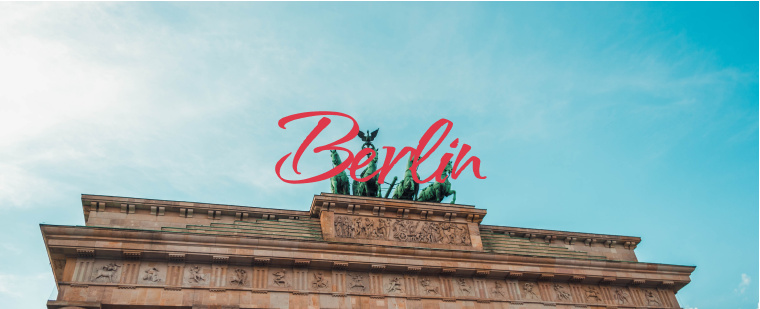Of course, there is an appetite for a return to live events in theory – but safety is still of paramount concern to consumers and businesses. A recurrent issue pertains to the depiction of live events in the media. Even when local governmental measures do allow for event go-ahead, the cancellation of major public events – such as the UK’s famous Glastonbury music festival – can sometimes negatively impact customer trust. And yet, the overall feeling throughout the industry is that everybody – whether it be betrothed couples or senior B2B marketers – are itching to get back to in-person events. They just want the assuredness of safety, first.
So how is the events industry salving consumer concern? As restrictions are eased and plans are made for future months and years, more and more MICE agencies are turning to flexible work plans that allow for numerous adaptations of the same event. When employed alongside an adjustable strategy with various routes for execution, the chance of overall success is greatly improved.
When international live events do come back – in whatever hybrid or altered form that might take – one thing MICE agencies must be ready to tackle is disrupted supply chains (something countries trailblazing a return to live events are already encountering). Freelancers and events suppliers have suffered from months of dead time thanks to the pandemic; in fact, many have left the industry altogether. It’s becoming increasingly clear that sustained communication, relationship management and stellar organisation will be of the utmost importance to agencies and brands looking to pull themselves out of the event slump of 2020.
Of course, what everyone really wants to know is when live events will return for good. Sadly, it’s a question with no straightforward answer. Naturally, vaccination will ultimately play a big part in ending the pandemic on an international scale – but that doesn’t mean COVID-19 will be vanishing from the earth anytime soon. By their very nature, pandemics are a global phenomenon. Countries cannot restart normal life in isolation – even with a fully vaccinated population – because we need global immunity before we can return to anything that even slightly resembles pre-covid life.
With the added uncertainty around virus mutation – and many countries across Asia and Africa not set to begin vaccination until the latter half of 2021 – it’s reasonable to assume that the events industry would do better to continue to adapt to COVID-19, rather than planning for things getting back to ‘normal’ anytime soon.
As indicated by a recent Bloomberg report, New Zealand, Singapore and Australia are trailblazing the way in kick-starting business boom by teaching citizens to work with (rather than in spite of) COVID-19 restrictions. Clear governmental communication, investment in public health infrastructure and regular testing have all played a part in giving these countries their advantages – and that’s been aided by faithful public adoption of preventive measures such as masks, social distancing and regular hand washing.
These same tactics of success will similarly apply to the world of live and hybrid events in this year and beyond. The Bloomberg report warns of uncertainty surrounding the impact of vaccination on lessening transmission (it remains unknown whether or not immunised individuals may still be able to transmit the virus). And this is just one of many reasons why the business world cannot rely on vaccination for corporate salvation; instead, strategic and innovative approaches will lead the way for successful events in 2021 and beyond.
As Dr Clare Wenham, assistant professor of global health policy at London School of Economics, told Sky News: “The pandemic isn’t going to be over until it’s over globally.” For the events industry especially, this global perspective is paramount – a sense of international community and connection forms the backbone of the events world.
Singapore’s Education Minister, Lawrence Wong, has warned that there will be many more bumps to come with the impact of COVID-19 likely reverberating through the next four to five years. In fact, at our current rate of vaccination it could take as long as seven years for things to return to the time before. For those of us in the events industry, we must learn to treat the bumps ahead like hurdles rather than stumbling blocks – we might not be able to remove them completely, but we can learn to jump over them and keep running forward.
So, what do those jumps look like? For one thing, a return to live events – albeit in a more restrictive or altered format – will prove crucial to sustained survival and growth within the industry. With so many unknowns and considerations to keep in mind, governments must lead the way in ensuring that live events go ahead safely and fairly.
A lot can be gleaned from models of best practice. Singapore has been steaming ahead with their events recovery roadmap developed by the international tourism board alongside
Singapore’s Association of Convention Exhibitions and Events (SACEOS). Through a series of successful trial events – employing measures such as pre-event rapid testing, temperature checks, social distancing measures, divided area zones and capped numbers of attendees – Singapore has secured themselves as the host for the World Economic Forum’s special annual meeting in 2021.
This news came after the running of a number of successful events, including Singapore’s International Energy Week in October 2020. The World Economic Forum’s annual event will be the first global leadership gathering set to consider international recovery from the COVID-19 pandemic. With in-person attendees, the event is expected to bring together leaders who can help to conceive of, and implement, global solutions.
Scaling up the kind of model used by Singapore will help to quicken the return to live events on an international scale. Like with so many things in life, the real trick is consistency. If a set of common standards and processes are adopted by governmental events organisers, the international industry can begin to traverse the path to remerging and semi-regular live events – both while the pandemic is still with us, and as we start to progress out of it in the next four to five years.
Human innovation is truly our greatest asset. Work is already being undertaken on digital ‘fit to fly’ health passports which offer both validation of identity and certification of COVID test results, lessening the risk of fraud or falsified results. Assets such as these, when paired with standardised safety measures that event organisers must abide by, make the propensity for international events far more likely.
By adopting similar models, Europe, Africa and North America can achieve the same great results following the Asia-Pacific lead; helping to future-proof the events industry in a time where we have few guarantees about the pandemic’s ultimate duration. In order to keep events in check, it’s vital that governmental agencies and tourism bodies have the final call on the approval of large-scale events. This is something Singapore is already leading the way in, with MICE events with over 50 attendees requiring an application and events proposal – once submitted, this application can be approved by the tourism board, giving both the government and delegates confidence in its overall safety.
In the medium term, and throughout the transition period, events organisers must look at tackling digital fatigue head on. As we’re all too familiar with by now, video calls cannot fully recreate the experience of an in-person conversation. Whether it’s the lag caused by WiFi delay or eye strain from staring at a screen all day, seemingly small problems can add up to frustration and, ultimately, lack of engagement.







